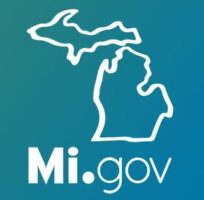
MDHHS and Courts Partner to Return Children Home from Foster Care
MDHHS and Courts Partner to Return Children Home from Foster Care Safely During COVID-19 Pandemic
LANSING, Mich. – The Michigan Department of Health and Human Services (MDHHS) and the State Court Administrative Office (SCAO) have partnered to ensure that children in foster care return to permanent homes as quickly and as safely as possible during the COVID-19 health crisis.
More than 200 children in Michigan’s foster care system have been identified as being close to being able to return home to one or both parents. Child welfare officials and SCAO want to help them achieve that goal within the next month, if not sooner.
“The department believes that children should not be in foster care for any longer than absolutely necessary,” said JooYeun Chang, executive director of the Children’s Services Agency at MDHHS. “Even though we are facing numerous challenges right now, the urgency to achieve permanency for children and their families should not be slowed due to COVID-19.”
The project, called Rapid Permanency, uses a team approach involving Michigan’s public and private child welfare caseworkers, lawyers and judges to analyze cases eligible for reunification where parents have made significant progress. These stakeholders coordinate with one another to create a plan, with the input of parents, to address barriers that are currently prohibiting reunification and to facilitate the immediate referral to resources or services that can support safe and expedited permanency.
SCAO is assisting in this process by equipping courts with the tools to hold virtual hearings, as well as developing recommendations to resolve issues without the need to have hearings so no delays occur in reviewing cases, and issuing return home orders for children, when appropriate. Justice Megan Cavanagh said “During a time of crisis, taking steps to make sure children are with their parents is the right thing to do. The goal of this partnership is to remove barriers to bringing families together as quickly as possible, and judges statewide are committed to making well-informed decisions that are in the best interest of every child.”
“To achieve permanency, families need strong support and access to resources, and this partnership will play a key role in making sure children can be safely reunified with their parents. With close supervision by the judiciary and support from child welfare professionals and the community, more children can go home,” said Justice Beth Clement.
Both Justice Cavanagh and Justice Clement focus on child welfare issues for the Court.
The team approach will include assessment of parent progress, implementing strategies to address remaining barriers to reunification, creation of a family-specific plan to ensure child safety and well-being, referrals to in-home family reunification services, and obtaining agreement among team members and the Court to assure safe return.
This team-focused approach to expedited permanency has proven successful in other states and is expected to help Michigan meet the goal of reunifying children with their families as quickly as possible. The hope is that whatever is learned through this project can also inform practice well into the future to ensure children can safely remain with their parents.
Information around the outbreak is changing rapidly. The latest information is available at Michigan.gov/Coronavirus and CDC.gov/Coronavirus.
# # #






